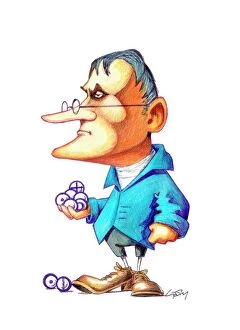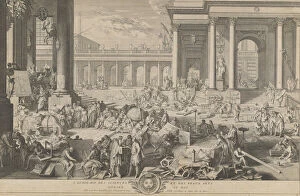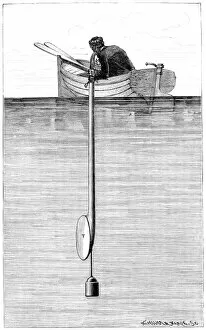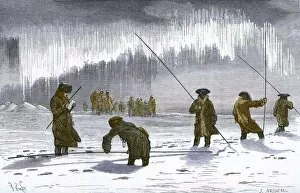French Academy Of Sciences Collection
The French Academy of Sciences, founded in 1666, has been a hub of scientific innovation and discovery for centuries
All Professionally Made to Order for Quick Shipping
The French Academy of Sciences, founded in 1666, has been a hub of scientific innovation and discovery for centuries. From its earliest days, it attracted brilliant minds from all over the world, including renowned British chemist John Dalton. His groundbreaking work on atomic theory revolutionized our understanding of matter. One can only imagine the intellectual fervor that filled the halls of the Louvre during meetings of the Academie Francaise des Sciences in the 17th century. Engravings depicting these gatherings transport us back to a time when knowledge was shared and nurtured within these esteemed walls. In 1698, L'Academie des Sciences et des Beaux-Arts was established under Louis XIV's patronage. This royal visit to the academy in 1671 showcases his support for scientific endeavors and highlights their importance in advancing society. Henri-Marie Blainville, a prominent French naturalist, made significant contributions to zoology and paleontology during his tenure at the academy. His research expanded our understanding of animal anatomy and classification systems. The pursuit of knowledge knows no boundaries or nationalities; hence John Dalton's presence at this prestigious institution is noteworthy. As a British chemist who studied atmospheric gases and developed atomic theory further, he left an indelible mark on scientific progress. Another remarkable experiment conducted within these hallowed halls was measuring the speed of sound in 1826. This groundbreaking endeavor pushed boundaries by exploring acoustics and laying foundations for future advancements in communication technology. Andre-Marie Ampere stands as one among many revered French physicists associated with this illustrious institution. His pioneering work on electromagnetism laid down fundamental principles still used today. Throughout its history, The French Academy of Sciences has served as a beacon for scientists across disciplines - from veterinarians like Henri Bouley to physicists like Andre-Marie Ampere - fostering collaboration and pushing boundaries beyond what we thought possible.









